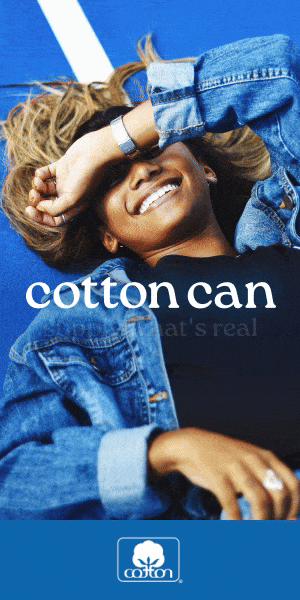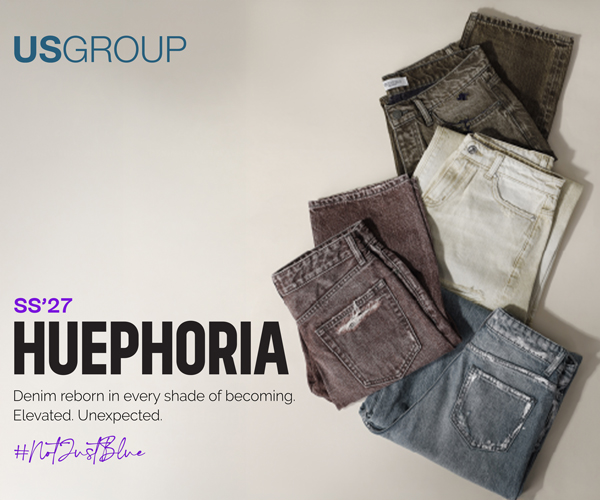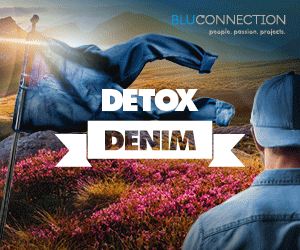Claire Ford: We strive to help the most vulnerable workers

The director of Claire Ford Consultancy and head designer for Outland Denim tells us how designing for sustainability is vital, and that Outland’s new process for investigating exploitation in supply chains could be of value to other brands sourcing from Turkey.
What’s most important to you, in terms of your work and what do you enjoy focusing on?
The most important part of my job is the people I work with, and being aligned with the company's values and working to a circular economy. Sustainability is important to me from a social, economic and environmental view so making sure everything I do and design considers these values. Eighty percent of the impact of each garment is decided at the design stage so I always try to source the best raw materials, such as recycled cotton, Refibre, hemp mixes, design for longevity and I also try to make sure I am working with new technologies within the laundry to reduce our environmental impact. Our eventual goal for Outland and my clients should be to set our targets past circularity and to a point where the environment, and humans, are in a better place from our creation of garments, so not just closing the loop on our products, but to create a positive loop system.
How do you think the pandemic has affected or might affect sustainability initiatives, or R&D?
I believe the current reality of the pandemic has highlighted the social impact and the fragility of the denim supply network; and I believe all brands need to extend responsibility to their entire supply chains. I hope brands’ R&D departments take the path of challenging the environmental and social impact of their designs and understanding the cost implications of creating a positive future. I do however worry about the financial restraints the pandemic has caused will lead to brands concentrating on price. Personally, it has only made both my consultancy and Outland Denim push for a more sustainable future and develop ways in which to improve both environmental and social R&D.
What are your thoughts on certification processes?
Traditional certification processes and audit programmes provide a lot of guidance to organisations; however, they have been proven ineffective, especially at identifying where exploitation is occurring. Challenges with exploitation certifications are that they are scheduled visits, a glimpse of a single point in time and certifications are not an instant fix to solving ethical and environmental challenges. I believe as well as certifications the industry should be working alongside governments, experts within the industry, NGOs and our suppliers.
Outland is currently working on a new 'certification process' for investigating exploitation which has now been successfully piloted and proven that our 'supply network intelligence system' as the most effective supply chain verification process in the world. We've been able to get to the deepest levels of the supply chain, the cotton farms, and communicate directly with the most vulnerable people in the chain. With this system, we can identify, mitigate and remediate the risks for any brands sourcing from Turkey.
What are you proudest of? What interests you the most?
I started my consultancy around 20 months ago and never imagined I would be so proud of all the work I have achieved within those months. I am proud of the fact I have most probably learnt more in the last couple of years than I have in my whole career in denim and learn more every day to become a confident consultant. I was also very surprised and proud of the fact I made it into the Rivet 50 for 2020 and also that I have built such an incredible network of people around me during Covid-19. I have loved doing online Zoom talks for both Carved in Blue and Transformers:ED (Kingpins) and having opportunities like this to express my interests and love of what I do.
What will the consumers be looking for in the future, how will this affect design?
Many retail businesses are influenced by consumer demand and I hope covid-19 is changing people’s thinking and creating more of an interest into knowing how and who makes our clothes. Most consumers are still unaware of what goes on behind the scenes of fashion and getting this message to them and being transparent will help get more consumers on board with supporting sustainable fashion. I believe we will have to be more transparent with our design and development processes and believe we will see many inspiring positive movements taken by the industry by being honest and open about our processes. The more transparent retail and brands become, the more trust we will have in them. The power of the consumer together with the industry's collective drive for change can only be a good thing for design.
In terms of fibres and materials, what would you like to see happen in the next five years?
In terms of fibres I would love to see the end of polyester-based yarns. We are learning so much about why this is so bad for our planet and would love to see us using more natural sustainable fibres, mainly recycled and not newly farmed. We need to look to a more circular system for fibres which I believe is vital in the overall sustainability footprint of each company.
Claire Ford is based in London and has more than 10 years’ experience in denim design and development in the UK retail sector, working for AllSaints, Reiss and Next. She launched Claire Ford Consultancy almost two years ago, focusing on design, trend, wash, environmental, economic and social sustainability, working with clients Outland Denim, Reiss and Trendstop as well as start-ups and sustainable factory Strom.












